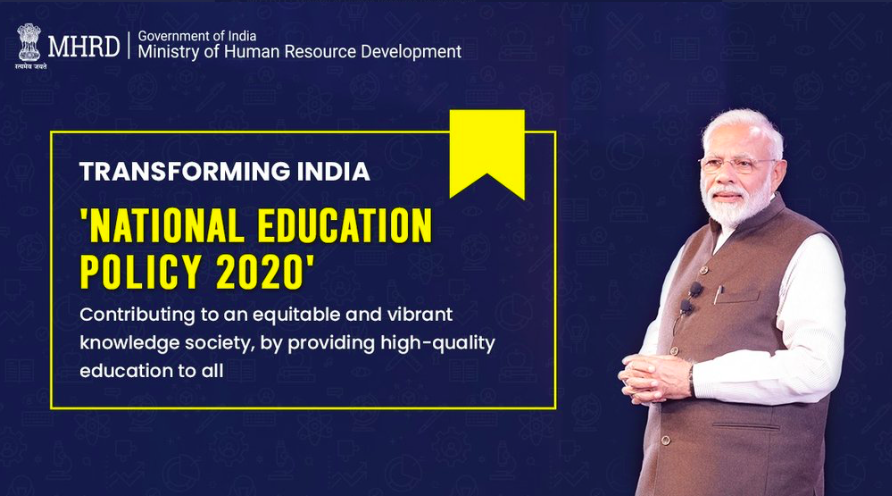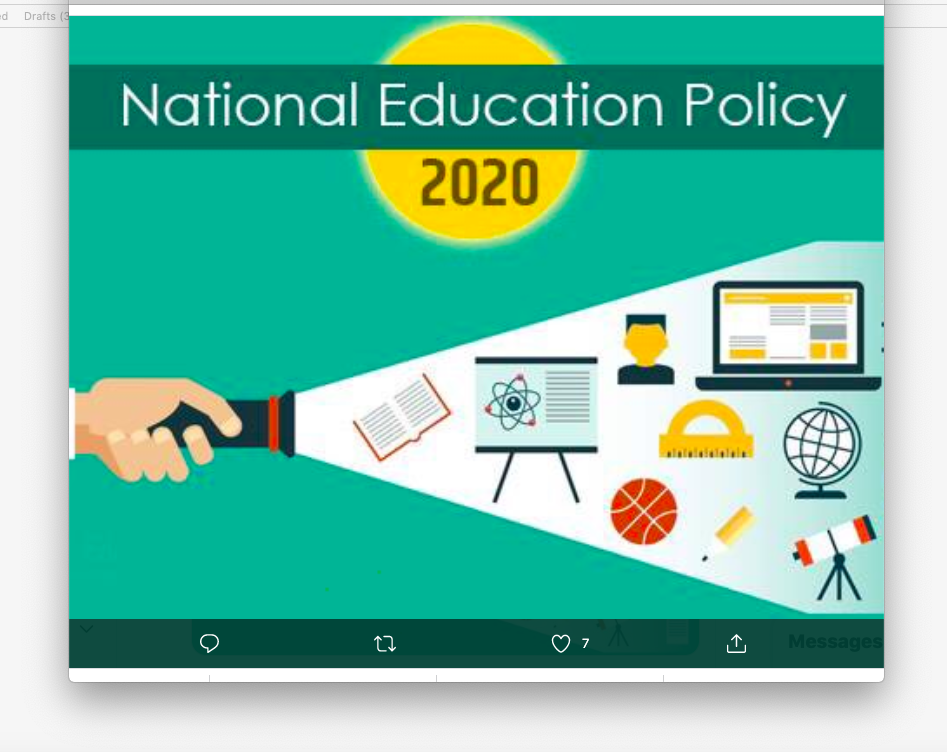New Delhi, NFAPost: Union Minister for Human Resource Development Ramesh Pokhariyal ‘Nishank’ has said that National Education Policy 2020 will bring transformational reforms in school and higher education systems in the country.
In a move to strengthen the competitive advantage of India in the information technology industry, students of class 6 and onwards will be taught coding in schools as a part of 21st-century skills.
Speaking at media briefing in New Delhi after Cabinet gave its approval to the New Education Policy 2020 earlier on Wednesday, the HRD Minister said that the NEP was drawn up after the largest consultation and discussion process of its kind in the country. The Union Minister added that 2.25 lakh suggestions received after the draft was placed in public domain for consultations.
Education destination of world
Expressing his gratitude to the Prime Minister Narendra Modi and the Cabinet for granting approval to the National Education Policy 2020, Ramesh Pokhriyal ‘Nishank’ said that with the implementation of this policy India, will emerge as a great knowledge centre and education destination in the world.
“The National Education Policy 2020 will play an important role in creating new India. I congratulate all the students, teachers, parents and all stakeholders for the New Education Policy and call it a historic moment for the country,” said Union Minister for Human Resource Development Ramesh Pokhariyal ‘Nishank’.

He further said that this policy will bring transformational reforms in both school and higher education sectors. He said that NEP2020 will ensure universal access to high-quality Early Childhood Care & Education across India.
“We will focus on developing social capacities, sensitivity, good behaviour, ethics, teamwork & cooperation among children through a joyful pedagogy,” said Union Minister for Human Resource Development Ramesh Pokhariyal ‘Nishank’.
This is the first education policy of the 21st century and replaces the thirty-four year old National Policy on Education (NPE), 1986.
Mand
Education sector to get 6% of GDP, earlier it was 1.7%
The Union government approved a plan to increase public spending on education to nearly 6% of gross domestic product (GDP) from around 4% now, as part of NEP
Sustainable development
Built on the foundational pillars of Access, Equity, Quality, Affordability and Accountability, this policy is aligned to the 2030 Agenda for Sustainable Development and aims to transform India into a vibrant knowledge society and global knowledge superpower by making both school and college education more holistic, flexible, multidisciplinary, suited to 21st century needs and aimed at bringing out the unique capabilities of each student.
MoS for HRD Ministry Sanay Dhotre said that the NEP 2020 is most comprehensive, radical and futuristic policy document in educational history of this country.
“It does not recognise any barrier in bringing quality and outcome-based education to each and everyone. It now includes children during their most foundational years, that is 3-5 years, for their care and education. Critical thinking, experiential and application-based learning, flexibility in learning, focus on life skills, multidisciplinary, and continuous review are some of the salient features of this policy,” he said.
Bringing back 2 crore out-of-school and drop-out children and universalisation of school education from 3 years onwards reflect on our commitment to the philosophy of ‘no one to be left behind’. Academic Bank of Credits, National Research Foundation, and National Mission on Foundational Literacy and Numeracy are some of the landmark policies, which will radically transform our educational ecosystem.
Dedicated unit for digital and online learning.
A dedicated unit for the purpose of orchestrating the building of digital infrastructure, digital content and capacity building will be created in the MHRD to look after the e-education needs of both school and higher education. A comprehensive set of recommendations for promoting online education consequent to the recent rise in epidemics and pandemics in order to ensure preparedness with alternative modes of quality education whenever and wherever traditional and in-person modes of education are not possible, has been covered.
HECI- Common regulatory body for entire higher education
Higher Education Commission of India(HECI) will be set up as a single overarching umbrella body the for entire higher education, excluding medical and legal education. HECI to have four independent verticals – National Higher Education Regulatory Council (NHERC) for regulation, General Education Council (GEC ) for standard setting, Higher Education Grants Council (HEGC) for funding, and National Accreditation Council( NAC) for accreditation.
Vocational studies in school- level
Every child to learn at least one vocation and exposed to several more.
Sampling of important vocational crafts, such as carpentry, electric work, metal work, gardening, pottery making, etc., as decided by States and local communities during Grades 6-8.
By 2025, at least 50% of learners through the school and higher education system shall have exposure to vocational education
A 10-day bagless period sometime during Grades 6-8 to intern with local vocational experts such as carpenters, gardeners, potters, artists, etc.
Similar internship opportunities to learn vocational subjects to students throughout Grades 6-12, including holiday periods.
NCC wings in secondary and higher secondary schools
Under the aegis of the Ministry of Defence, State Governments may encourage opening NCC wings in their secondary and higher secondary schools, including those located in tribal dominated areas





